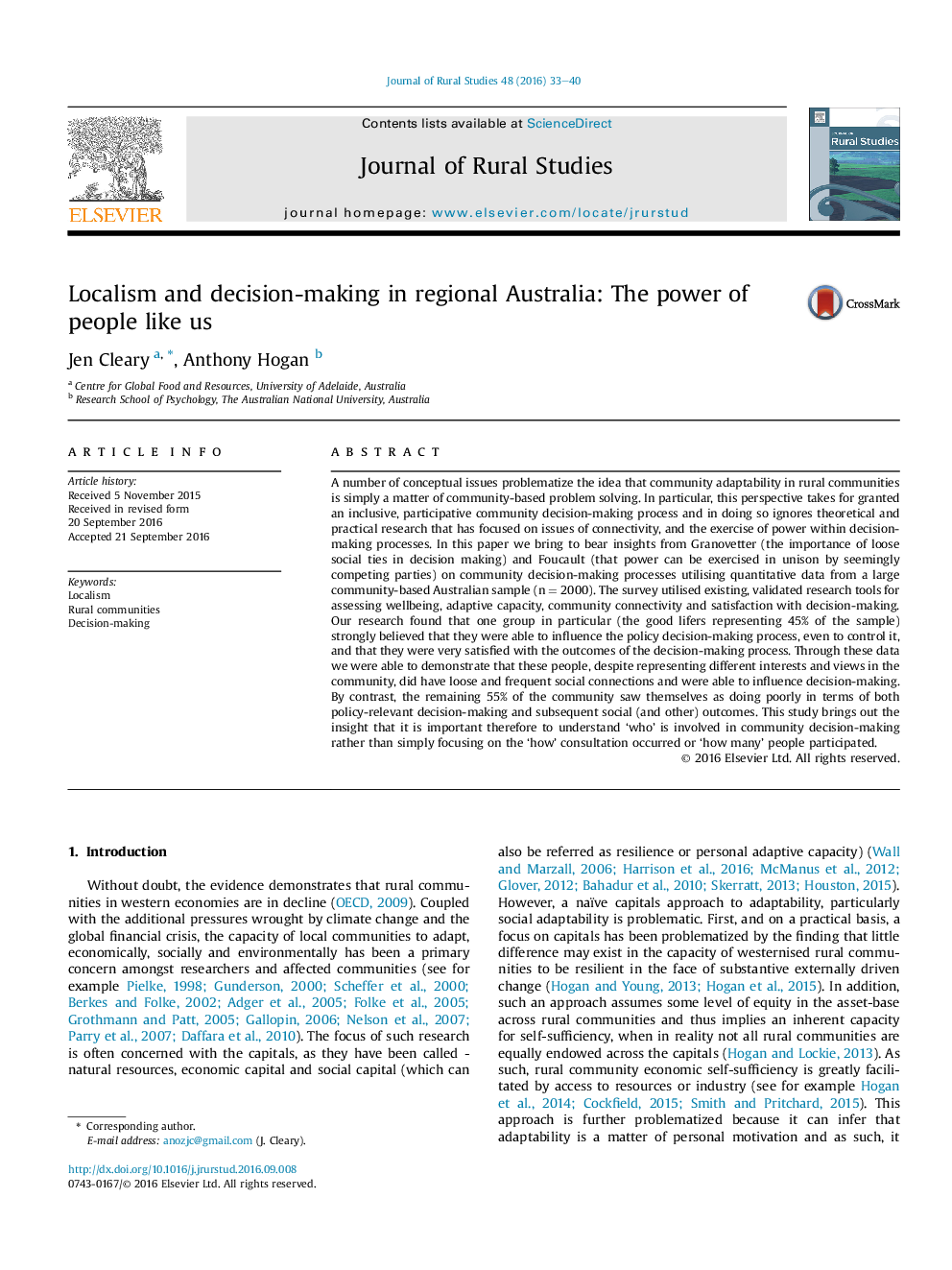| Article ID | Journal | Published Year | Pages | File Type |
|---|---|---|---|---|
| 4759966 | Journal of Rural Studies | 2016 | 8 Pages |
Abstract
A number of conceptual issues problematize the idea that community adaptability in rural communities is simply a matter of community-based problem solving. In particular, this perspective takes for granted an inclusive, participative community decision-making process and in doing so ignores theoretical and practical research that has focused on issues of connectivity, and the exercise of power within decision-making processes. In this paper we bring to bear insights from Granovetter (the importance of loose social ties in decision making) and Foucault (that power can be exercised in unison by seemingly competing parties) on community decision-making processes utilising quantitative data from a large community-based Australian sample (n = 2000). The survey utilised existing, validated research tools for assessing wellbeing, adaptive capacity, community connectivity and satisfaction with decision-making. Our research found that one group in particular (the good lifers representing 45% of the sample) strongly believed that they were able to influence the policy decision-making process, even to control it, and that they were very satisfied with the outcomes of the decision-making process. Through these data we were able to demonstrate that these people, despite representing different interests and views in the community, did have loose and frequent social connections and were able to influence decision-making. By contrast, the remaining 55% of the community saw themselves as doing poorly in terms of both policy-relevant decision-making and subsequent social (and other) outcomes. This study brings out the insight that it is important therefore to understand 'who' is involved in community decision-making rather than simply focusing on the 'how' consultation occurred or 'how many' people participated.
Related Topics
Life Sciences
Agricultural and Biological Sciences
Forestry
Authors
Jen Cleary, Anthony Hogan,
